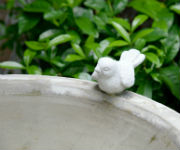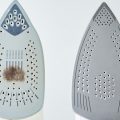
Ah, the never-ending battle of cleaning the oven… It’s probably our least favourite task which often gets postponed again and again. Neglecting this task, however, only results in an oven covered in burnt food debris and enough smoke to set off the fire alarm.
Not to mention, the cooked food might start tasting a little…extra charred. Luckily, social media is constantly overflowing with new cleaning hacks for the modern oven-owner to test. Because who has time to scrub, there should be an easier and faster way, right?
So there’s this new trending “oven cleaning hack” which suggests using a dishwasher tablet to clean the oven. It sounds easy enough, but are there risks to this method and things that should be avoided? We will look into it below.
Table of Contents
What is the dishwasher oven hack?
According to numerous cleaning enthusiasts, dishwasher tablets contain concentrated dishwasher detergent which allows them to effectively tackle tough grease. There are three main popular methods for using dishwasher tablets for oven cleaning.
The first, which is likely the most commonly used, suggests getting an oven-proof dish and filling it with warm water. Then, adding a dishwasher tablet to the water, placing the dish in the appliance and setting the oven to 100°C – 120°C for at least an hour. This hack is considered to work wonders in removing stubborn, baked-on residue.
The second hack is cleaning the oven door and even the interior by directly scrubbing it with a wet dishwasher tablet. The third is wrapping the racks in aluminium foil, putting them in a sink or tub filled with hot water and resolving dishwasher tablets.
It sounds easy enough and seems to require minimum scrubbing, still using a dishwasher tablet to clean your cooking appliance can hide some risks that it’s good to be aware of before deciding whether to apply this method or not.
Are dishwasher tablets safe for cleaning ovens?
Dishwasher tablets are typically a combination of sodium percarbonate detergents, enzymes and boosters designed to annihilate stains, grease, grime, dirt, and even the stubborn “baked-on” food particles from your dishes. Therefore, it may seem logical to some people that a dishwasher tablet can lift the oven grime just as easily.
But can it really handle the ultimate challenge of conquering those burned-on food particles? Some may think so, but let’s not forget a dishwasher tablet is created for a dishwasher which operates in different conditions.
So we advise against this method as it can potentially harm your oven and pose risks to your family’s well-being. Let us explain the reasons behind this caution in more detail:
- Damaging seals and other oven components – Combining the potent chemicals contained within the effervescent tablet with the intense, scorching heat of the oven could potentially wreak significant havoc upon the integrity of the oven’s seal and the delicate, intricate components housed within the appliance.
- Chemical residues – Dishwasher tablets can harbour hazardous substances that can persist as residue in the oven even after meticulous rinsing, potentially posing a significant health risk. At best, you will have to rinse the oven’s interior and door several times to eliminate the detergent and even then it won’t come close to the way a dishwasher would clean and the amount of water it would use.
- Harmful fumes – These cleaning methods can produce chemical fumes which are not safe for the household. Dishwasher tablets are designed for a specific appliance and way of use. There is no way to know how the chemicals in the tablet will react when exposed to such high temperatures for an extended period and in another appliance.
What else to avoid when cleaning the oven?
And speaking of things to look out for when it comes to oven cleaning, here are a few more common mistakes.
Applying the cleaner and removing it immediately
We’re all in a rush these days, but even the specialised oven cleaning solutions need a little time to work their magic. So be patient, leave the cleaner on that oven surface for as long as the instructions on the label recommend, and then wipe away the grime. Sometimes this can save you from having to apply the product a second time.
Laying aluminium foil inside the oven
For capturing spills at the oven’s base, many people opt to use aluminium foil. However, aluminium foil possesses a highly reflective surface that not only reflects but also blocks heat, leading to an uneven cooking process, with some food areas overcooked and others undercooked. In more extreme cases, melted foil can cause permanent damage to the oven and the need for costly repairs.
Not preheating the oven
Preheat the oven for 15 minutes prior to cleaning to effectively loosen any stubbornly adhering food particles or greasy residues. This will guarantee a significantly more effortless cleaning process.
Believing all ovens can be cleaned the same way
Ovens aren’t all made the same and shouldn’t be maintained the same. Learn more about the coating, components and functionalities of your appliance before deciding how to approach the cleaning. For proper cleaning methods, read the instruction manual.
Cleaning with abrasive tools that can scratch the surface
Scrubbing with excessive force or employing abrasive tools can inflict unsightly scratches upon the delicate surface of your oven. To restore its pristine condition, gently wipe it with a soft cloth or a sponge.
Relying on harsh chemicals
It is widely believed that the harsher the chemicals, the better the cleaning will be. However, as we’ve already established with the dishwasher tablets, it is important to avoid harsh chemicals since they can damage the interior of your oven and create harmful fumes.
What are some alternative eco-friendly oven cleaning methods to try?
But who needs fancy, expensive cleaners when your kitchen probably already has all the ingredients for a grease-fighting oven cleaner? Let’s see what wallet- and eco-friendly oven cleaning solutions you can mix on your own. Most of them are well-known and have proven their effectiveness countless times, so perhaps it’s time to rediscover their potential.
Baking soda paste
Want to bring some sparkle back to your oven? Mix up some baking soda and water, then cover the grimy surface with the paste. Let it work its magic overnight or for at least 2-3 hours if you are in a rush.
In the morning, scrape off the gunk and paste. Finish it off with a warm water wipe down and voila!
Lemon juice
Need a quick and green way to tackle tough grime? Grab a lemon, sprinkle on some baking soda, and go to town scrubbing those stubborn stains. This works great for eliminating greasy specks from the oven door, too.
The baking soda will dissolve from the acid, giving it just a gentle abrasive power unlike the one of the dishwasher tablet. It’s like using a sponge, but way more zesty and effective thanks to the lemon’s acidic powers.
Do you need your oven deep cleaned?
Enter your postcode to view our rates and availability in your area.
For questions about the services we offer visit our main site or you can always call us at 020 3404 0145
Takeaways
- Using dishwasher tablets to clean your oven can have negative consequences, such as damaging the seals and components, leaving behind residue, and emitting harmful fumes.
- To prevent mistakes when cleaning your oven, make sure to give the cleaner enough time to work, preheat the oven, and avoid using abrasive tools or harsh chemicals.
- Instead of using dishwasher tablets, consider using inexpensive and eco-friendly alternatives such as a mixture of baking soda and water or lemon juice to effectively clean your oven.









Leave a Reply